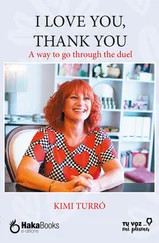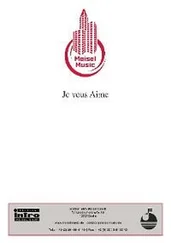Callie gets him the same thing every year, because it is Charlie’s favorite. She’s brought six large boxes worth of Frosted Flakes and Lucky Charms and Trix, and he devours the cereal in every one while Callie laughs, while our mother takes pictures, while I try not to cry.
He plays inside Callie’s large boxes until I get up the courage to take out my velvet box and set it on the floor. When he notices it, he’s up in a flash, snatching it into his hands.
It’s only when I see Charlie struggling with the clasp — first bashing the box on the ground, then grasping the clasp between his teeth, then, most frustrating and sadly of all, pinching his fingers, trying to get them small and agile enough to manipulate the catch — that I realize how perverse that box is, what a cruel present it makes. I realize why I was so eager to have it, why I saved it for twelve long months and made my wife pack it tight, why I took it out to stare at it for two hours this morning. Some part of me must have known he couldn’t open it, must have anticipated his frustration, must have thrilled to play this trick. My own pettiness sears through me, a surprise.
Callie watches Charlie struggle and huff and eventually start banging again until the box falls open and he can scrape out the meat. She turns to me but doesn’t say anything, only narrows her eyes. My pettiness doesn’t surprise her at all. It’s been proven again, my eagerness and capacity to hurt, and it is not shocking, only tells her what she already knows. She hasn’t been fooled by me for a long time. Right now, she knows me best.
My mother is beside herself. She can’t sit still, she wants to stop Charlie’s frustration and open his box for him, and gently pull the meat apart and feed him slips of liver one by one. But he is in such a frenzy, she can’t get ahold of him. She folds her hands and only allows herself to lilt forward, as if she can’t help it, as if she is being called. When he finally bashes my gift open and laps at the contents, she leans forward even farther. She wants to hear Charlie gnashing his triumph.
He traces his finger along the surface of the liver, marbled with broken brown veins, and he licks the grease.
When he’s done eating, he stalks away and turns his back to us. We are dismissed. We go back to the car. I usually treat Callie and my mother to dinner at a diner near town, but now, as I restart the car, Callie clears her throat shyly and proudly calls out from the backseat that the meal is on her.
My mother beams, “That’s wonderful.”
I am a little irked that such a simple, adult act draws such praise, but I nod and just sign Thanks . I also force myself not to ask how she will pay for it.
At the diner, after we’ve ordered and the waitress has left us, Callie clears her throat again.
“So,” she says. “I have something to tell you.”
She says she can afford this dinner because she’s been saving. She’s been saving for the past three years and she finally has enough money and this spring she is moving to Kinshasa, to the Congo. She is going to volunteer with an ape sanctuary there.
“Oh, Callie, it’s too dangerous. You can’t go. There are sanctuaries in nicer places,” my mother protests. “Go to Louisiana, go to Florida.” But her cries are weak. She knows she doesn’t really have a say.
“It’s only for a year,” Callie says, but something in her voice catches, her eyes skip. Callie is a terrible liar.
I watch her from across the table. I know, a few months from now, she will stand at the side of some unknown heat-broken highway. She will stand at the brink of a great wide forest. It will be night. She will hear through the brush that familiar, piercing cry, but it won’t be frightening. She’ll recognize it as the sound of home. Callie will not hesitate. She will step off the broken road into the brush and she will walk straight into the cool of the trees and she won’t ever come back.
I see all this, sitting across from her in the diner, my forearms sticking to the stray maple syrup tacked across the tabletop. I lift my right hand.
Good-bye .
Callie smiles back.
Good-bye.
Thanks to my editor, Andra Miller, and Algonquin Books. Thanks to Carrie Howland and Donadio & Olson.
Thanks to Colum McCann, Peter Carey, and the faculty and students of Hunter College’s MFA program. Thanks to Bill Cheng, Tennessee Jones, Brianne Kennedy, Sunil Yapa, and Carmiel Banansky.
Thanks to the Lower Manhattan Community Council’s Workspace Residency; Johnson State College, Green Mountains Review support, and Jacob White and Barbara Murphy; and Bread Loaf Writers’ Conference and the many good friends and readers found there.
Thanks to the Weeksville Heritage Center and my co-workers there: Jennifer Scott, Jennifer Steverson, Kadrena Cunningham, Elissa Blount-Moorehead, Emily Bibb, Veronica Gallardo, Lauren Monsein-Rhodes, and Robin Cloud.
Thanks to Sarah Schulman and Alexander Chee.
Thanks to Laylah Ali.
Thanks to Deborah Reck, Arthur Unobsky, Ann Kinchla, Sheila Pundit, and the Writers’ Express. Thanks to Aaron Zimmerman, Rose Gorman, and the staff and volunteers at New York Writers’ Coalition.
Thanks to Molly Brown, Ilana Zimmerman, Lana Wilson, Margaret Garret and the Garret family, Ross Middleton, Michael J. Palmer, Rebecca Sills, and the many other friends who continually encouraged this project.
Thanks to Kirsten Greenidge, Kerri Greenidge, Ron Nigro, Katia Greenidge-Nigro, Hunter Greenidge-Nigro, Romi, Timo and Sophia Kielnecker, David Dance, Suzanne Dance, Kwame Dance, Tyron Dance, Eric Davis, Candace Corbie-Davis, Fidel Corbie-Davis, Che Corbie-Davis, Antoinette Cezair, Corryn Shaw, and Patricia Davis.
And finally, thanks to my mother, Ariel Greenidge.

Kaitlyn Greenidgewas born in Boston. She received her MFA from Hunter College. Her work has appeared in the Believer, American Short Fiction, Guernica, Kweli Journal, the Feminist Wire, Afro Pop Magazine, Green Mountains Review, and other places. She is the recipient of fellowships from Lower Manhattan Community Council’s Work-Space Program and Bread Loaf Writers’ Conference and other prizes. She currently lives in Brooklyn. (Author photo by Syreeta McFadden.)
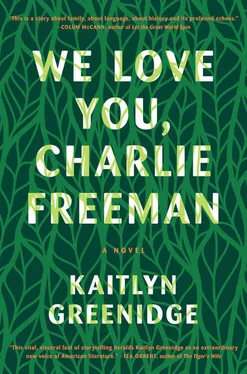




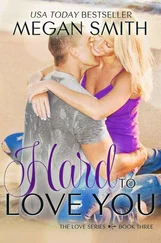

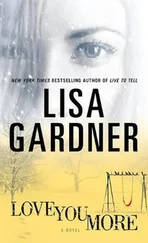
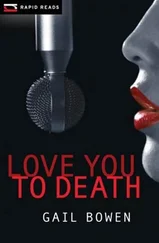
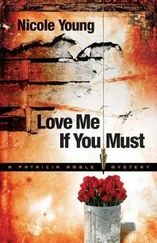

![Ally Carter - [Gallagher Girls 01] I'd Tell You I Love You But Then I'd Have to Kill You](/books/262179/ally-carter-gallagher-girls-01-i-d-tell-you-i-lo-thumb.webp)
